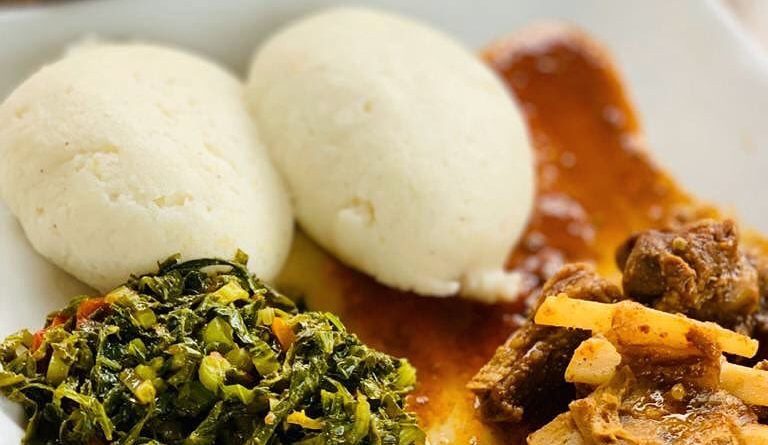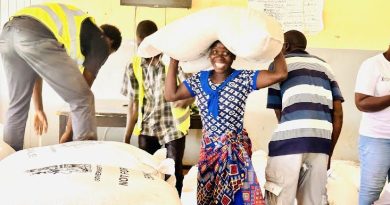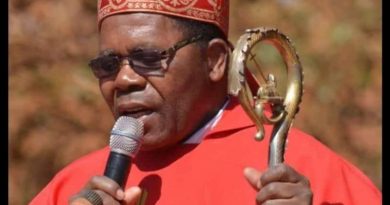Servant leadership for reduced inequality, poverty
By James Mphepo*
Robert K. Greenleaf defined servant leadership as a philosophy and set of practices that enriches the lives of individuals, builds better organizations and ultimately creates a more just and caring world. From definition it is clear that the servant-leader is servant first. It begins with the natural feeling that one wants to serve, to serve first.
Then conscious choice brings one to aspire to lead. That person is sharply different from one who is leader first, perhaps because of the need to assuage an unusual power drive or to acquire material possession.
The leader-first and the servant-first are two extreme types. Between them there are shadings and blends that are part of the infinite variety of human nature. The difference manifests itself in the care taken by the servant-first to make sure that other people’s highest priority needs are being served.
The best test servant leader is: Do those served grow as persons? Do they, while being served, become healthier, wiser, freer, more autonomous, more likely themselves to become servants? And, what is the effect on the least privileged in society? Will they benefit or at least not be further deprived? A servant-leader focuses primarily on the growth and well-being of people and the communities to which they belong.

While traditional leadership generally involves the accumulation and exercise of power by one at the “top of the pyramid,” servant leadership is different. The servant-leader shares power, puts the needs of others first and helps people develop and perform as highly as possible.
During the 2019 general elections of June, 2020 court ordered presidential elections, President Lazarus Chakwera of Malawi Congress Party led the nine Tonse Alliance partners to win the 2020 presidential elections. Malawi Congress party with its nine partners touted for servant leadership as one of the pillars of hi 5 agendas. The question that citizens are having is that is the Tonse Alliance government walking the talk?
Reports by various media stations in December, 2020 that revealed that Parliamentary Service Commission had unanimously agreed to increase allowances by MK1.1 million to MK2.2 million representing 100 percent increase in allowances came as surprise to many well-meaning Malawians. The media reports also revealed that Parliamentally Service Commission also agreed to increase salaries of members of parliament from MK862,400 to MK948 640 and salaries of councilors by MK50,000 from MK100,000 to MK150,000.
This was a surprise because all these developments are happening despite coronavirus wrecking havoc on Malawi economy and depressed revenue. Malawi’s three-year pathway of fast economic growth has been interrupted by the COVID-19 (coronavirus) pandemic. The full extent of the pandemic’s negative impact is still uncertain as the crisis unfolds but the widespread impact of the COVID-19 crisis is expected to be felt beyond 2020/2021 financial year.
In October, 2020 members of parliament approved a 2020/2021 budget with a deficit of MK651.1 billion which is 9% of Gross Domestic Product due to inability of government to collect more revenue.
The citizens are surprised that the government through the Minister of Finance announced an increase on minimum wage to MK50,000 during presentation of the provisional budget. The proposal was referred to Tripartite Labour Advisory Council for agreement and being gazzeted into law. While the deliberations of the council has not been made public, Centre for Social Concerns has noted with concern that even the proposed MK50,000 is not adequate to sustain decent living standard.
The low minimum wage is pushing more Malawians into poverty bracket. Malawians have been receiving poor wages for years. Studies conducted by Centre for Social Concern through Basic Needs Basket findings revealed that the cost of living of recent is increasing due to global pandemic. In October, 2020 the cost of living was over MK197,000 and is increasing every month. The food poverty line is over MK100,000. The proposed minimum wage cannot support to buy food that provides adequate energy and nutrition, let alone the buying of essential household needs.
The low minimum wage is not necessarily due to the performance of our economy BUT total negligence and self-centeredness of our Leaders.
It is sad to note while the country is struggling to provide essential health services, raising minimum wages of low-income earners. Government and Parliamentary service commission has the audacity to increase allowances of members of parliament and salaries for councilors. Studies carried out by Centre for Social Concern has revealed that majority of Malawians receive less than the food poverty line which is at of MK100,000 per month.
Centre for Social Concern therefore believes that an increase in minimum wage will support majority of Malawians to move out of poverty line. The poor Malawians are greatly affected by global pandemic of Covid-19. Centre for Social Concern believes that an increase in minimum wage will help majority of Malawians in attaining their rights such as Right to Food, right to education, right to access to quality health services, and right to life.

There is a lot of discrimination due to provision of low minimum wage that was set by government. A lot of Malawians are wallowing in abject poverty due to provision of low minimum wage. The Increase in allowances of members of parliament is influencing an increase in annual wage bill from MK15.4 billion to MK20.7 billion.
This is happening despite various reports that revealed that Malawi is one of the poorest countries in the world. According to 2015 World Bank report about 70% of the population living on less than international poverty line of $1.90 a day. The country is stuck in a deadlock of slow economic growth which is unequally distributed; where poverty and inequality are two faces of the same coin. Economic inequality is growing significantly. In Malawi citizens are still being oppressed by policies and laws which are exclusive in nature.
The overall persistent high levels of poverty in Malawi suggest that poverty is more of the consequence of how a society shares out resources than how many the resources the country has in overall. The core of the problem, however, remains that Malawi, has some of the most distorted systems of the redistribution of wealth in Southern Africa for example taxation injustice and high-income inequalities.
While members of Parliament and ministers are given an opportunity to buy one duty free vehicle, local Malawians are taxed in water, cooking oil and electricity services. These government policies are only benefiting rich people thereby increasing poverty and inequality. Recently it has been observed that the president has been intoxicated with a number of internal and external travels during this tough economic period. It is not a secret that presidential travels use a lot of money. Lack of servant leadership was also demonstrated when the president took an entourage of 66 people to South Africa. This was a waste of tax payers’ money who are receiving very low wages.
Centre for Social Concern believes that the most effective way to achieve inclusive and equitable growth is through the creation of safe and remunerable employment opportunities for all. This is paramount for Malawi, where access to decent paid work is not inclusive and is not a driver of poverty reduction. Instead, the greatest majority of the population is employed in the informal sector, with about 60% in precarious employment. A third of all workers in rural areas are in paid employment, usually as agricultural workers on large estates, often complementing their own farm earnings. Their wages, even if complying with the national minimum wage, are often below the poverty line.
Within the formal sector, there is evidence of a steep remuneration scale, leaving Malawi with the largest wage gap between the lowest-and highest-paid jobs among Southern African countries in 2010: executives were earning 107 times more per month than the lowest-paid workers.
There is widespread concern that economic growth has not been fairly shared, and that the economic crisis has only widened the gap between rich and poor. Inequality between the richest and the rest in Malawi has continued to rise markedly, with poverty remaining extreme and endemic. To reduce inequality, it is essential that the government delivers on the priority areas identified in Malawi Growth and Development Strategy III (MGDS III), striking the right balance between the essential role of the state and the need to expand the private sector.
In Conclusion the Tonse Alliance Government that is being led by Dr Chakwera and Chilima is failing to provide servant leadership as promised to Malawians. Through the current revelations of increase in allowances and salaries of members of parliament, increase in salaries of councilors while failing to increase minimum wage from MK35,000 to MK50,000 for low income earners. The unfair taxation on cooking oil, water and electricity and one duty free vehicle for ministers and members of parliament is clear testimony of lack of servant leadership for the current government.
*Mphepo is programme officer – economic governance – at the Centre for Social Concern in Lilongwe.



